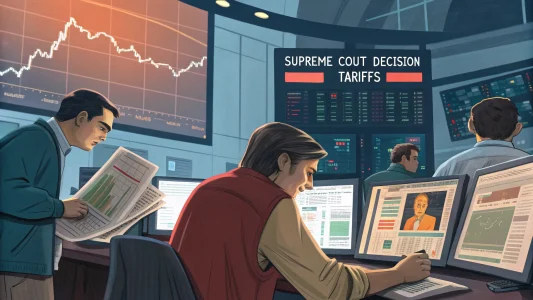Last year, Bitcoin futures began trading. They entered the market on December 18. Investors clamored for a piece of the cryptocurrency pie soon. This demand pushed Bitcoin past the “psychological barrier” of $10,000. The excitement behind Bitcoin trading resulted in websites crashing the same day.
However, what goes up must come down. Bitcoin suffered a $50 million loss in its overall capitalization. These events have led many investors to question Bitcoin’s readiness for straightforward portfolios.
Bitcoin is still a currency with no real asset behind it. It arrived in 2009 with the promise that only 21 million could ever be created. Those confident in Bitcoin’s future say this makes it an appealing inflation hedge. Those lacking confidence in cryptocurrencies say it’s too reminiscent of the black market.
Table of Contents
ToggleWhat’s Holding Bitcoin Back
Craig Birk, executive vice president of portfolio management at Personal Capital, a money management firm, says it’s hard to predict what will happen to Bitcoin’s prices with all of the current unknowns. “What we do know is that Bitcoin is not backed by any real assets or expected future cash flows in the way a stock or bond is, and it has little industrial use at this point beyond illicit transactions. For these reasons, we choose not to include it in client portfolios,” he said. “We also suspect increased regulation will happen, though a case could be made that this would be good or bad for cryptocurrencies.”
Birk likens Bitcoin to purchasing art or other luxury items. “There is a market for it, and so it will be worth whatever people are willing to pay. That is not much different than art or fine wine except that the increase in price has been much more dramatic. We think everyone must acknowledge that there is a chance prices go significantly higher and a chance they plummet.”
Can Bitcoin Sustain Its Value?
Goldman Sachs CEO Lloyd Blankfein is also concerned about the niche product. He questions its ability to serve as a currency. “Something that moves up and down 20 percent in a day doesn’t feel like a currency, doesn’t feel like a store of value,” he said. His firm’s commodity chief believes Bitcoin is a commodity.
International experts seem to align with this approach. UBS, a Swiss financial services company that operates globally, wrote, “We think the sharp rise in cryptocurrency valuations in recent months is a speculative bubble.” The company points to the possibility of another cryptocurrency being established that’s both easier to use and more widely available. This would decimate the value of existing currencies like Bitcoin.
And, UBS highlights the logistical concerns. The analyst firm said, “If governments refuse to accept cryptocurrencies for tax payments, the single most important transaction in an economy, that significantly reduces demand for cryptocurrencies. Governments are highly unlikely to ever take this step.” China is one country that’s already declared it does not consider Bitcoin a legitimate form of currency. Currently, it does not accept it as payment.
What Bitcoin Has Going for It
Bitcoin’s biggest benefit, in traders’ eyes, is its limited accessibility. Those who earned early-mover advantage have profited from their willingness to take a risk on a currency not yet established. The digital-only existence of Bitcoin has bewildered some in the investment community. This has led them to give Bitcoin a wide berth and a leg up to those willing to mine for it.
Many also believe that specific countries hesitant to adopt the currency have limited influence on other stock exchanges. Aurelien Menant, the CEO of token exchange Gatecoin, said traders had realized “it doesn’t really matter what happens in China anymore, the exchanges based there no longer dominate trading activity.” He noted European and Asian investors were fueling the bull cycle.
Yet, many Bitcoin investors seek long-term gains. They believe that hanging on through the highs and lows of cryptocurrency’s stock prices will result in a handsome windfall. With better technology platforms and enhanced security backing the cryptocurrency, transaction fees will drop. Emin Gün Sirer, associate professor at Cornell University and the co-director of the Initiative for Cryptocurrencies and Smart Contracts, believes the technology has other applications.
He believes the technology could ensure business activities are more transparent and hold financial institutions more clearly accountable. He said, “It’s going to take at least half a decade to a decade to play out. … At the heart of it all is a brand-new way of structuring data, sharing information, and facilitating business processes that we just did not have before.”
The Bottom Line
Financial experts on both ends of the spectrum have compelling arguments for and against Bitcoin. However, they all agree on one thing. As a currency, Bitcoin is in its infancy. Bitcoin’s volatile trading nature and unpredictable prices make it a smart investment for those investors who have significant funds to play with or a thirst for risk.
Birk’s assertion that Bitcoin isn’t quite ready for portfolio primetime appears to be an accurate statement for now. Bitcoin’s ecosystem is likely to change substantially over the next few years. For the time being, it’s too erratic to do anything but make some very wealthy and some very regretful.
[Related: What is a Bitcoin Rainbow Chart?]











